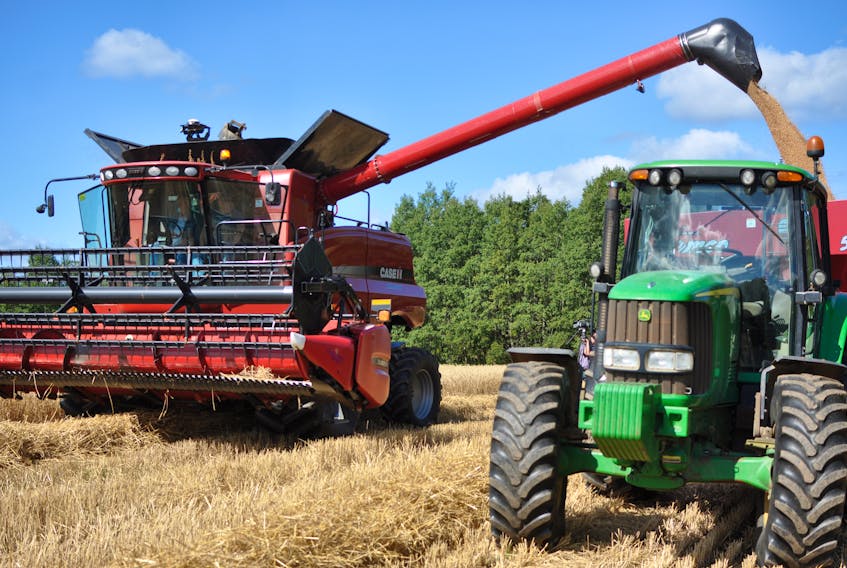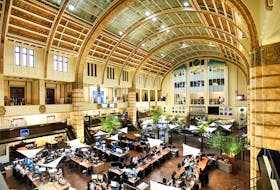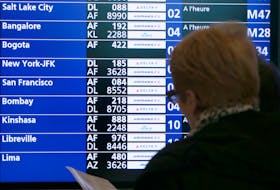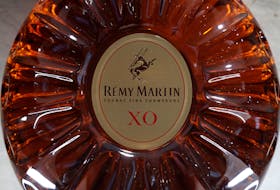Wayne Simmons stood back from the group a bit on Monday and watched as the media event showcasing the field of winter wheat he’s grown in Pasadena unfolded around him.
He laughed when he said he was just there to drive the tractor.
But his role is much greater than that.
Simmons, is the co-owner of Hammond Farm in Little Rapids, and he’s helping the provincial government with an initiative aimed at increasing food and livestock feed self-sufficiency.
Related stories:
Province’s first attempt at growing canola seems to have worked
The winter wheat is just one of the research trials being undertaken by the Pynn’s Brook-based Western Agriculture Centre: Agriculture Research Station, under the Agriculture Production and Research Division of the Department of Fisheries and Land Resources, in collaboration with Grenfell Campus, Memorial University of Newfoundland and Agriculture and Agri-Food Canada.

Simmons’ farm has rented the field in Pasadena from Green Acres Farm, and another close to the highway, for about 12 years and used to grow grass there.
That was until the government approached them to see if they were interested in trying different things.
Simmons said the partnership seemed like a good idea.
“Just to try and help out with them, so they can do their trials and see what can be grown in Newfoundland.
“To see what our options are for growing. We need to know. It’s expensive for a farmer to try it.”
With the government and university willing to try, Simmons said “it’s beneficial for us to give them some land to do it on.”
The winter wheat is a crop they’ve grown before and while past crops of canola and soy beans worked, they didn’t work for the farm.
Simmons said they grew winter wheat on the land four years ago and knew it worked, so they wanted to get back to it because the crop has a benefit for the farm.
Pure Holsteins operates its dairy farm on Hammond Farm’s property and the grain from the wheat will be used to feed the cows and the straw that’s left over from the harvesting process will be used as bedding.
Between the total 30 acres planted, the yield has been good and by supplementing the feed for the cows it will cut down on the amount the farm will have to buy.
Vanessa Kavanagh is the research scientist with the department who runs the grain and oilseed program.
The program started out to see if winter wheat was a viable crop and with that being a yes, is now in its sixth year. Kavanagh said they are at the point of trying to optimize it.
She said best management practices exist on the mainland and the goal is to find out what’s best for the climate and soil here.
She thinks the collaboration with farmers is great as all sides work along with each other.
“They’re learning as we learn it. So, they’re making the mistakes with us, but they’re also learning all of the solutions at the same time.”
The province has invested in the equipment needed, like the combine and wagon, used in the harvest.
“When you’re trying to take on a crop like this that needs so much different equipment and you don’t know if it’s going to work, as a farmer that’s not a risk you’re going to take. You just can’t afford to take it.”
She said for the farmers it’s not a free investment if the field fails, because they would have had in something else that was guaranteed.









